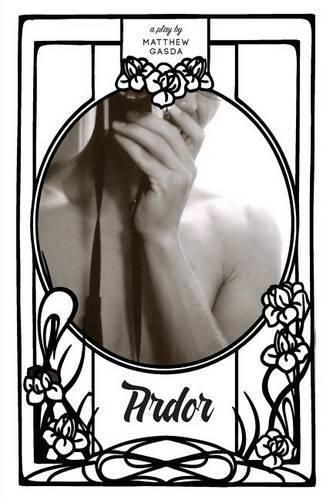Readings Newsletter
Become a Readings Member to make your shopping experience even easier.
Sign in or sign up for free!
You’re not far away from qualifying for FREE standard shipping within Australia
You’ve qualified for FREE standard shipping within Australia
The cart is loading…






From the author: Theater is uniquely alive and at-risk in every moment; or it can be – if the elements are right. It is uniquely alive in the way that quotidian life is not necessarily alive and at-risk. It is necessary medicine. An ancient medicine. A ritual of self-realization. World literature has produced only a handful of great plays; there is far less first-rate drama than there is poetry or prose. It is a unique and absolutely challenging form: theater demands the crystallization of the way we – whoever we are at any given point in space time- live, think, breath, feel. Ardor, whether it succeeds or doesn’t, is ontologically and linguistically ambitious: it attempts to put pressure on our own sense of ourselves not as beings in the world, but as beings who use language to define the world they live in. More prosaically: Ardor is about us, but it is also open to re-interpretation in the future. I didn’t want to write a play that will be useless in ten years: this is not a blog article about young people or contemporary art – it’s about the chaos that underlies human nature; a chaos that can be painted with different colors and associations.
$9.00 standard shipping within Australia
FREE standard shipping within Australia for orders over $100.00
Express & International shipping calculated at checkout
From the author: Theater is uniquely alive and at-risk in every moment; or it can be – if the elements are right. It is uniquely alive in the way that quotidian life is not necessarily alive and at-risk. It is necessary medicine. An ancient medicine. A ritual of self-realization. World literature has produced only a handful of great plays; there is far less first-rate drama than there is poetry or prose. It is a unique and absolutely challenging form: theater demands the crystallization of the way we – whoever we are at any given point in space time- live, think, breath, feel. Ardor, whether it succeeds or doesn’t, is ontologically and linguistically ambitious: it attempts to put pressure on our own sense of ourselves not as beings in the world, but as beings who use language to define the world they live in. More prosaically: Ardor is about us, but it is also open to re-interpretation in the future. I didn’t want to write a play that will be useless in ten years: this is not a blog article about young people or contemporary art – it’s about the chaos that underlies human nature; a chaos that can be painted with different colors and associations.